Maxie Reynolds is the founder and CEO of Subsea Cloud, a startup that builds, deploys, and maintains subsea data centers. She started her career in oil and gas as an underwater robotics pilot and subsea engineer before working in cybersecurity and social engineering. She published a bestselling book in 2021 titled, “The Art of Attack: Attacker Mindset for Security Professionals” and is widely considered one of this generation’s most successful security professionals. Her aim through Subsea Cloud is to reduce latency, costs, and CO2 emissions for hyperscale spenders and small businesses alike.
Maxie holds degrees in computer science and underwater robotics, and is educated in quantum computing and cybersecurity.
How can telecommunications technologies help humanity?
Telecommunications technologies enable people to stay in touch, they enable faster, more efficient health care. They enable distance learning and even greater awareness of environmental issues. Telecommunications can make a direct contribution to the implementation of many services and programs that educate and inspire positive change in communities. I believe telecommunications technologies not only help humanity, but can be deterministic – revolutionizing the economy and society.
If one thing should be redeveloped within the telecom and related industries, what should it be?
Different companies in varying sectors of our industry have monopolies on services and products that we all rely on to implement our own services and products. Failing to address these monopolies can lead to supply chain failure and a stagnation in progress.
Is it important for companies to continue to innovate their organization or offerings, and why?
If you think of innovation as an instrument, it’s the only one that ensures survival and ultimately lasting success. It’s hugely important for companies to resist becoming complacent. We’ve seen examples time and time again of companies failing to adapt, suffering the consequences of innovation lag. Among many others, Blockbuster, Kodak, Borders Group, Motorola, and even Sony to an extent, failed to respond to market changes brought about by innovation, either because of a fixed mindset or perhaps they didn’t read the market right.
What would you share with those interested in becoming a PTC Member?
PTC provides access to industry thought leaders. Certainly, of equal importance, joining PTC has given us the opportunity to challenge the status quo and showcase our contribution to our industry’s continual evolution. I think this would be true for anyone joining.
What important piece of information should people know about PTC?
It’s truly the antithesis of a stuffy, formal conference where people only really want to talk to the people that can help them. PTC fosters important relationships that aren’t confined solely to what one party can do for the other but are built on mutual curiosity and keenness for the industry and its progression.
What advice would you share with current and future graduates interested in this field?
The most important advice to new graduates and young people joining our industry is to look at everything as a problem to solve – even the things that are working. This is the fastest way to innovation and modernization. Don’t rely on the status quo; lean into it only when there is no better solution. If you see a way to make something – some process or product – truly better, advocate for that change.
What industry mogul or up-and-coming leader have you followed or are currently following, and why?
Slightly outside of my own domain, but I do follow Reshma Saujani – she is the founder and CEO of Girls Who Code, a non-profit organization aimed at reducing the gender gap in technology as well as giving girls confidence and skills through coding.
What has been a positive outcome organizationally or individually given the current state of the world?
From an organizational standpoint, the current climate has allowed many to see the value in what we offer, given we can rapidly provide infrastructure and infinite scalability near densely populated areas.
About Subsea Cloud
Subsea Cloud, a U.S. based company, is a provider of subsea data center infrastructure. They place data centers underwater eliminating electrically driven cooling, which results in the reduction of power consumed and carbon emitted. The pods can reach depths of 12,000 feet and rest on the seafloor lights out for long periods of time. The company is run by its co-founder, Maxie Reynolds, a subsea engineer and published author in cybersecurity.









